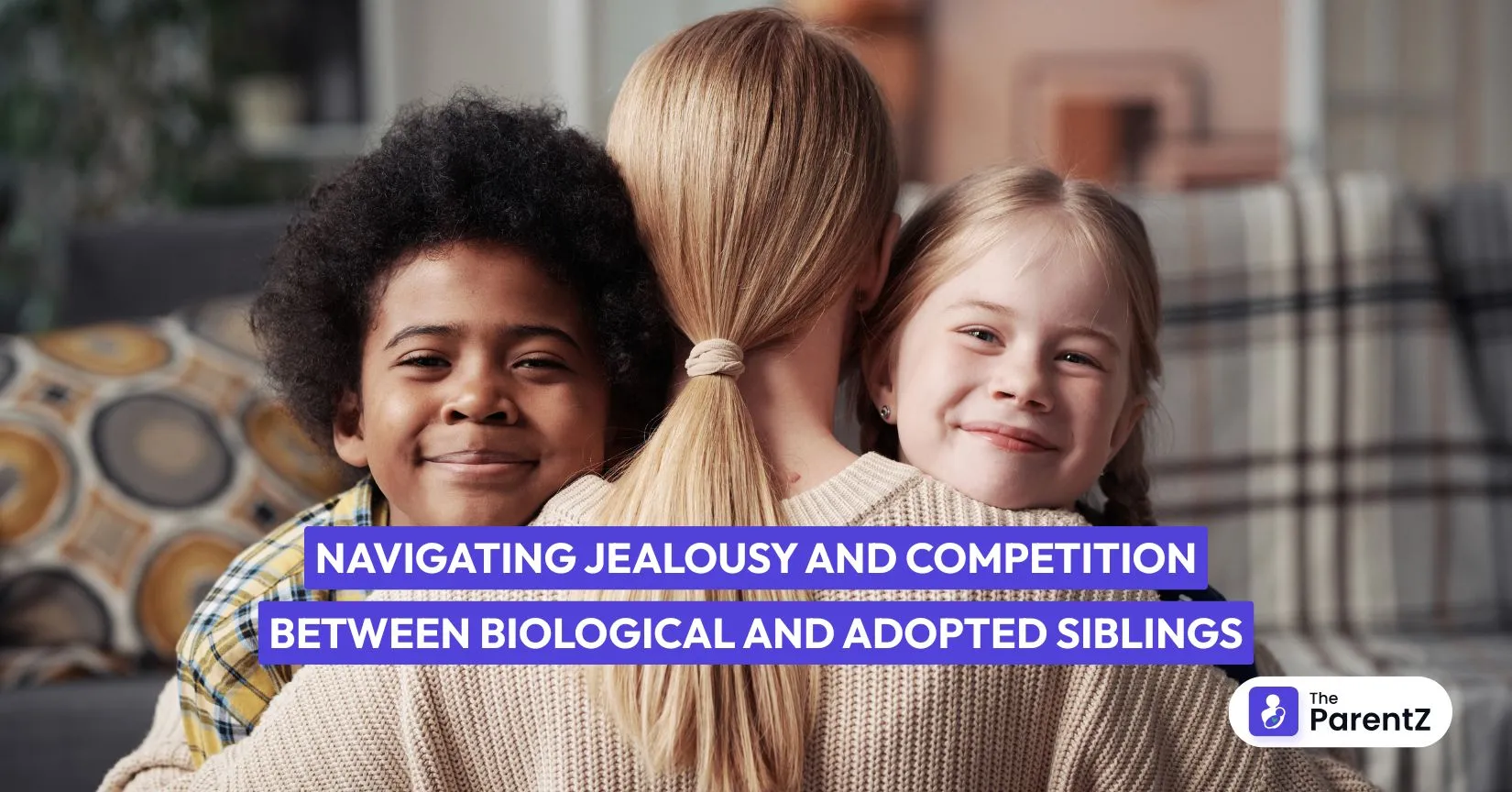When families blend biological and adopted children, love multiplies, but so can the complexities. Every parent dreams of their children getting along perfectly, but the reality is that jealousy and competition between siblings are completely normal, and it becomes even more layered when adoption is part of the story.
The Heart of the Matter
Let's be honest about what really happens behind closed doors. Your biological child might wonder why you "needed" another kid when they were already there. Your adopted child might worry they're not truly part of the family or fear being sent away if they misbehave. These aren't bad thoughts - they're human thoughts that deserve understanding, not judgment.
Competition often shows up in unexpected ways. Maybe your biological child suddenly acts younger, seeking the same attention that they see their adopted sibling receiving. Perhaps your adopted child tries extra hard to be perfect, believing they need to earn their place in the family. Both reactions come from the same place: a deep need to feel secure and loved.
Understanding the Biological Child's World
Your biological child has their own set of worries that are easy to overlook. They might feel like the family dynamic changed overnight, even if the adoption process took months or years. Questions like "Do Mom and Dad love them more because they chose them?" or "Am I still special?" can eat away at their confidence.
Sometimes, biological children feel guilty for having advantages their adopted sibling didn't have, like baby photos with grandparents or stories about pregnancy. They might also feel pressure to be understanding and mature about everything, which is a heavy burden for any child to carry.
The key is acknowledging these feelings without dismissing them. When your biological child says something that sounds insensitive about adoption, they're usually expressing a deeper fear about their own place in the family.
Walking in the Adopted Child's Shoes
Adopted children often carry invisible wounds that can fuel jealousy and insecurity. They might look at family photos and wonder where they fit in the story that started before them. Even in the most loving homes, questions about belonging can surface during conflicts or stress.
Competition might be their way of proving they deserve to stay. If they see their biological sibling getting praised for a school project, they might push themselves harder in sports or music, hoping to secure their own special place in the family hierarchy.
Fear of abandonment runs deep, even when logic says otherwise. During sibling arguments, adopted children might worry that parents will choose the biological child if forced to pick sides.
Practical Ways to Handle Jealousy
Start by validating feelings instead of fixing them immediately. When your child says, "It's not fair," resist the urge to explain why it actually is fair. Instead, try "That sounds really frustrating" or "Tell me more about what's bothering you."
Create individual connections with each child that have nothing to do with their siblings. One-on-one time shouldn't be a reward for good behavior - it should be a regular part of family life that each child can count on.
Avoid comparisons, even positive ones. Saying, "Why can't you be more like your brother?" is obviously harmful, but "You're both so different and special in your own ways" can also feel empty to a child who's struggling with their identity.
When conflicts arise, focus on the behavior rather than making it about biological versus adopted dynamics. Treat sibling rivalry as sibling rivalry, not as an adoption issue, unless the children specifically bring up those concerns.
Teaching Empathy and Understanding
Help your children understand each other's experiences without making anyone responsible for fixing anyone else's pain. Share age-appropriate stories about both adoption and biological families, showing that all families have different beginnings but the same capacity for love.
Encourage your children to talk about their feelings, but don't force deep conversations. Sometimes, understanding develops naturally through everyday interactions rather than scheduled family meetings.
Create family traditions that include everyone equally. Whether it's pizza Friday or bedtime stories, these consistent experiences help build shared memories that belong to everyone.
Conclusion
Remember that sibling relationships take time to develop, just like any relationship. Some biological siblings don't get along until they're adults, so expecting instant harmony in blended families isn't realistic.
Focus on building a family culture where everyone's story matters, where differences are acknowledged rather than ignored, and where love isn't seen as a limited resource that needs to be divided.
The goal isn't to eliminate all jealousy - that's impossible. The goal is to create a safe space where children can work through these normal feelings while building genuine connections with each other.
Most importantly, trust that love has a way of growing and evolving. Today's rivals often become tomorrow's closest allies, especially when parents provide patient guidance and endless understanding along the way.





Be the first one to comment on this story.